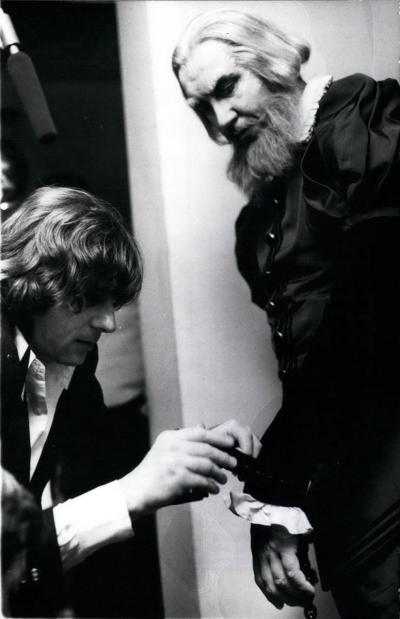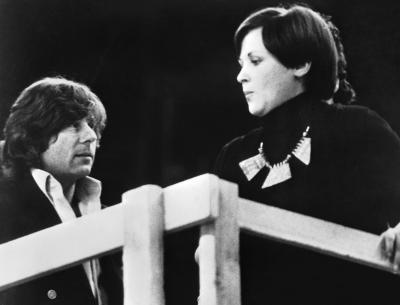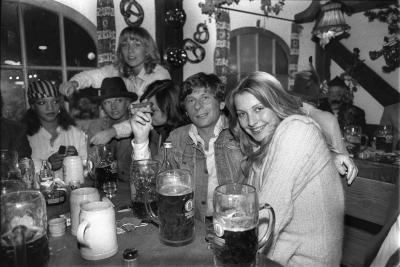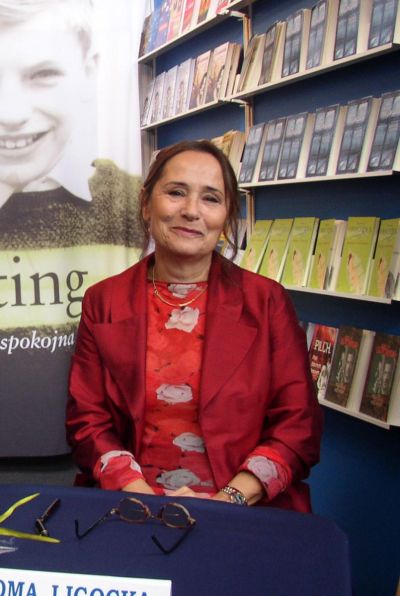Roman Polański in Munich: between fame and infamy

It was a beautiful and wild time back in the 1970s in Munich. Munich had been developing cinematically since the 1920s, and now film greats like Rainer Werner Fassbinder, Klaus Lemke and Werner Herzog as well as the renowned Bavaria Filmstudios turned the German film capital into a "Bavarian Hollywood". Schwabing beckoned as the hub of the world. And one of the people it beckoned was the famous director Roman Polański. Since his breakthrough as an internationally acclaimed Polish film director, Polański had led a jet-set life spinning like a carousel between London, Paris, Rome, Los Angeles and the Bavarian capital, where in 1976 he rented a suite in the Residenz-Hotel at the Arthur-Kutscher-Platz. Here in Munich he was entrusted with a new production of Verdi's Rigoletto at the Bavarian State Opera in the 1976/77 season. Up to now Polanski's life had already had many twists and turns. But this was the first time that he had been asked to direct an opera in Germany.
His parents Bella (née Katz-Przedborska) and Mojżesz Liebling had lived in Paris for several years when they decided to return to Poland in 1937 with their then three-year-old son Roman and his older half-sister Annette because of increasing anti-Semitism in France. The family emigrated to their father's hometown, Kraków. Caught unawares by the invasion of Poland by the German Wehrmacht, in 1941 the family ended up living in the Kraków Ghetto under miserable conditions. Roman went into hiding with a Catholic peasant family. As a result he was the only member of the family to escape the dissolution of the ghetto in Kraków in 1943 and the deportation to an extermination camp. His pregnant mother was murdered in Auschwitz. His half-sister Annette survived the extermination camp and joined her biological father in Paris at the end of the war. After the war Roman stayed in Poland with his father Mojżesz, who had returned from the Mauthausen concentration camp as a broken man and changed the family name to Polański.
After studying art at the Art School Liceum Sztuk Plastycznych in Kraków and following a course in directing at the Film Academy Państwowa Wyższa Szkoła Szkoła Filmowa, Telewizyjna i Teatralna im. Leona Schillera in Łódź, Roman Polański shot several short films in which he developed his unmistakable stylistic mixture of sombre atmospheres, grotesque and subtle ambiguities.[1] Polański won international recognition for his first feature film “Knife in the Water” (1962). It was awarded the Critics' Prize at the Venice Film Festival and nominated for an Oscar in the category “Best Foreign Language Film”. In contrast, his film met with little approval in Poland. The intimate thriller about a young couple on a yacht and a hitchhiker, that was harshly critical of Polish socialist society, was rejected by the state authorities and film critics in Poland. After a stay in Paris, Roman Polański decided not to return to Poland but to try his luck as a filmmaker in the West.
The movies “Repulsion” (1965) and “Cul-de-Sac” (1966) were followed by a huge hit, “Dance of the Vampires” in 1967. This brought Polański a ticket to Hollywood. One year later Polański finally became a star director with “Rosemary's Baby” (1968). In the same year he married the American film actress Sharon Tate, but in 1969 she was brutally killed by followers of the cult leader Charles Manson. According to Polański, her murder was the greatest drama of his life. In the years that followed Polański lived mainly in Europe, oscillating between different subjects and styles in his cinematic work and leaving many projects unfinished.[2] In 1974 he shot the film “Chinatown” that was to receive eleven Oscar nominations and is still regarded as one of the most important films in the 1970s. Although Polański had returned to his old strengths he abandoned filmmaking for a while to dedicate himself to other challenges.
[1] http://www.film-zeit.de/Person/31905/Roman-Polanski/Biographie/ (called up on 27.03.2018)
[2] Roman Polanski: Der Blick der Verfolgten. Eine Biographie, p. 211
He took photos for the French fashion magazine Vogue as well as staging plays and operas in various theatres in Europe. In 1974 he directed “Lulu” at the Spoleto festival in Italy. This was followed in 1976 by “Rigoletto”, his first (and only) work as a director on the German stage. In an interview with the Süddeutsche Zeitung, he said that he chose this opera because of the multi-layered characters and not least because of the music. And although it was one of his favourite operas, he had never seen a production of “Rigoletto” until then.[3] The potentials inherent in the artistic presentation were what appealed to him in theatre and opera: while film as an art form demanded that the presentation be as realistic as possible, in a stage production there could be a kind of collusion between the actors and the audience to accept reality as defined by the production.
The international star and his “Rigoletto” attracted a lot of attention and raised expectations in Germany, especially in Munich. The tabloid newspapers were not the only ones to stimulate such expectations in the weeks running up to the premiere, as DIE ZEIT was to summarise later. The price of opera tickets on the black market leapt fivefold. The cultural elite were looking to the Polish avant-gardist to provide them with a dramatic condensation or a contemporary production of Verdi's melodrama. But at a press conference during rehearsals Polański said that he had changed almost nothing in the libretto and that there would be no spectacular innovations: “I'm not looking for some kind of gimmick for the concept of the opera” and they could expect no showy film effects. “I'm trying to keep within the convention of this opera.” In other words, he was confining himself to reviving something that was choked by convention and routine and to making it vital, fresh and authentic.[4] “What I'm trying to do is to create an atmosphere which expresses the content of the individual scene. I'm trying to be unconventional in the way people move. I'm trying to make singers move and sing in the same time whenever I can. And I'm trying to stage it in a way that people who don't know the libretto by heart can still understand what's going on.”
The premiere of “Rigoletto” on October 31th 1976 in Munich, failed to live up to the expectations of an avant-garde production. The audiences at the Bavarian State Opera were forced to forego their desires for a sensation.[5] Polański's premiere was a “really good municipal theatre production with many good ideas and a good deal of unattractive features [...]”, but “rarely went beyond these basic requirements.”[6] Apparently, as DIE ZEIT concluded in its review, there are all the “ineradicable platitudes” of an opera that “a non-opera director would inevitably think of: arias at the front of the stage, with no addressees among the participants; the helpless and almost continuous staging of the choir in a semicircle; the grotesque attitudinising that masqueraded as emotions. If any of his film characters ever dared to risk similar mimicry, I fear Polański would chase them out of the studio immediately. But opera is not film, and Polański was unable (and probably unwilling) to change the pitiful production conditions.”[7] Although the critics praised Polański and his stage designer Carlo Tommasi for their surprising (movable) set, this failed to conceal their overall impression that the staging was “stale”. The critics may have reacted in a lukewarm manner but the first-night audience will still give Polański a thunderous ovation. In the end the show was not a major setback for the world-famous director, even if it would be rarely discussed in Munich in the future.
[3] Süddeutsche Zeitung: Roman Polanski in interview with Charlotte Kerr, 28.10.1976. cf. Paul Cronin (ed.): Roman Polanski Interviews, 2005, p. 65
[4] DER SPIEGEL, 25.10.1976
[5] Diederichs-Lafite, M. (1976). Donaueschinger Musiktage 1976. Österreichische Musikzeitschrift, 31(12), pp. 678-680. Retrieved 30 March, 2018, from doi:10.7767/omz.1976.31.12.67
[6] http://www.zeit.de/1976/46/neue-einfaelle-alte-unarten (called up on: 27.03.2018)
[7] http://www.zeit.de/1976/46/neue-einfaelle-alte-unarten (called up on: 27.03.2018)
The next big crisis in his private life followed in March 1977, shortly before the end of the theatre season, when Roman Polański was accused of raping a 13-year-old girl in Los Angeles. In order to escape the charge, he came to an agreement with the plaintiff to plead guilty before the relevant US court. In return he agreed to accept a conviction for “extramarital sex with a minor” and a reduced prison sentence. After a six-week stay in a psychiatric prison he was finally released on bail. By arrangement with the judge, Polański travelled to Europe to finish a film production before the final verdict was to be pronounced. Back in Munich in September 1977, he was photographed with a group of young women at the Oktoberfest.[8] The harmless looking photo of Polański with underage girls that was published in the US press prompted the judge to renege on the previous deal. Instead he demanded a sentence of 50 years in prison for the Polish-French director. Fearing the threat of imprisonment Polański decided not to return to the USA but to settle in Europe. Since then he has lived in France, Switzerland and Poland.
Despite the scandal, Roman Polański's career in the coming years was constantly productive and marked by international success. He also directed more theatre plays, including “Amadeus”, Franz Kafka's “Metamorphosis”, and a stage version of “The Dance of the Vampires”. However, his last opera production to date remains that of “Rigoletto” in Munich.
Katarzyna Salski, April 2018
Further reading:
Paul Werner: Polanski, München 2013.
Thomas Koebner: Roman Polanski. Der Blick der Verfolgten. Eine Biographie, Stuttgart 2013.
James Greenberg: Roman Polanski. Seine Filme, sein Leben, München 2013.
Media:
Audio feature: "Rigoletto" unter Roman Polanski in München im Mittagsjournal 30.10.1976
[8] https://www.newyorker.com/magazine/2009/12/14/the-celebrity-defense (called up on: 30.03.2018)







